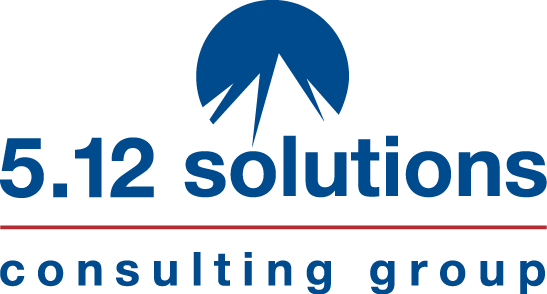What if work became a platform to make a bigger impact in this world?
What if you could do well, and also do good for humanity, for your community?
According to a Cone Communications Engagement Study, 51% of the people surveyed won’t work for a company that doesn’t have strong social and environmental commitments, and 74% say their job is more fulfilling when they are provided opportunities to make a positive impact at work.
Business can be a means to making a positive contribution to our communities, our society and our world as a whole.
And even if your business doesn’t embrace that concept, you can as leader and individual. When we create a work environment that fosters growth (see my last post) and provides a platform to positively impact the world, we tap into the core human workplace needs that lead to true fulfillment in work and life.
The 6 Human Workplace Needs
In my last five posts, I’ve shared a new model we created called the 6 Human Workplace Needs. The intent of the model is to provide a pathway toward creating a healthy, aligned and more human workplace.
The first four needs are what we call the core needs — needs that all people seek at a fundamental level at work:
- Connection with people
- Certainty as a result of safety
- Contributions are valued
- Clarity of the what and how
The last two needs are fulfillment needs — needs that result in meaningful and purpose-driven work.
- Challenge and growth
- Community impact
Let’s explore the second fulfillment need of community impact.
What is Community Impact?
There are so many great organizations that are making a positive difference in our world. Columbia Sportswear Company, one of our leadership development and executive coaching clients, has been very outspoken about current immigration policy and trade tariffs.
Salesforce donates 1% of their profits, products and people’s time to support the community. Their CEO, Marc Benioff, has spoken publicly about the need for a new capitalism and how the existing system has led to profound inequality. In an opinion article Marc posted in the New York Times on October 14, 2019, he wrote, “Yes, profits are important, but so is society. And if our quest for greater profits leaves our world worse off than before, all we will have taught our children is the power of greed.”
Patagonia takes a stand by making “without compromise commitments” to the preservation of the environment. They claim very publicly that this is not something they do after hours–as their mission states, “We’re in business to save our home planet.”
Businesses must find greater purpose in their work.
But what if your organization isn’t as evolved as some of these aforementioned role models? Well, you, too, can make a difference with the platform that you already have.
In my executive coaching sessions with business clients, I often hear leaders say, “When I retire, I am going to do x (x = something personally meaningful and impactful).” In fact, in a recent coaching session with the executive leader of a large manufacturing facility (over 1,200 employees), he began to talk about the meaningful work that his friend was doing as a football coach for middle and high schoolers. He was moved by the purpose-driven life he saw his friend living and frustrated by the lack of impact in his own role.
My response to this type of reflection is always the same. How can you use the platform you currently have to do what you dream of doing in the future?
You can make a difference now.
How to Create an Environment of Community Impact
Leaders at all levels can create the right conditions for people to not just create shareholder value, but also do good for the community and society in which we live.
To do so, leaders have to think about their mindset, skillset and daily habits. Let’s start with mindset.
Mindset
The mindset shift for most leaders is to realize that doing well and doing good are not mutually exclusive. We can create shareholder wealth and also make a positive impact in our world.
For example, brands with a high sense of purpose have experienced a brand valuation increase of 175% over the past 12 years, compared to the median growth rate of 86% and the 70% growth rate for brands with a low sense of purpose (Kantar Consulting’s new Purpose 2020 report).
And as younger generations become a bigger influence in our work environment, this mindset shift will be even more important. Studies have shown that millennials and then next generation are very concerned about the environment and their communities.
Skillset
Leaders need three skillsets to effectively leverage work to make a bigger impact on their community.
First, they need to have a vision for what can become possible between business and life. They have to be able to see how they can impact people and the community and do it in a way that also positively impacts the business and shareholders.
Second, they have to be able to effectively engage with a variety of stakeholders through storytelling. Taking on corporate social responsibility initiatives may involve influencing board members and other executive leaders, and showing people across the organization how doing well and doing good can impact both the business and community.
Third, leaders need to build a strong network with a broad set of constituents so that they can tap into resources that may otherwise not be available to bring the vision to life.
Daily Habits
Leaders who fulfill the higher-level need of community impact tend to have a daily ritual that sets up their day for success.
Instead of waking late, checking email and immediately reacting to outside influences, great leaders start their day with intention. It could be through meditation or yoga. Or through journaling, gratitude and visualization. Whatever the method, making the space to tap into what’s happening with you internally will enable you to lead externally with more clarity and purpose.
Where Do You Go From Here?
Steve Jobs once said, “Your time is limited, so don’t waste it living someone else’s life.”
The opportunity is now, right in front of each of us, to make a bigger difference in our world. We only get one chance at life, so we might as well do something that makes this world a better place. Whether it’s with the team members with whom we work, our direct reports, or the larger business, when we use our work as a platform to positively impact others, we can also create better business results.
Interested in helping your team and organization create a more healthy, aligned and human culture?
Check out our Human Workplace Needs Culture Assessment. You can download it below to better understand the current state of your team and create a future with more meaning.

